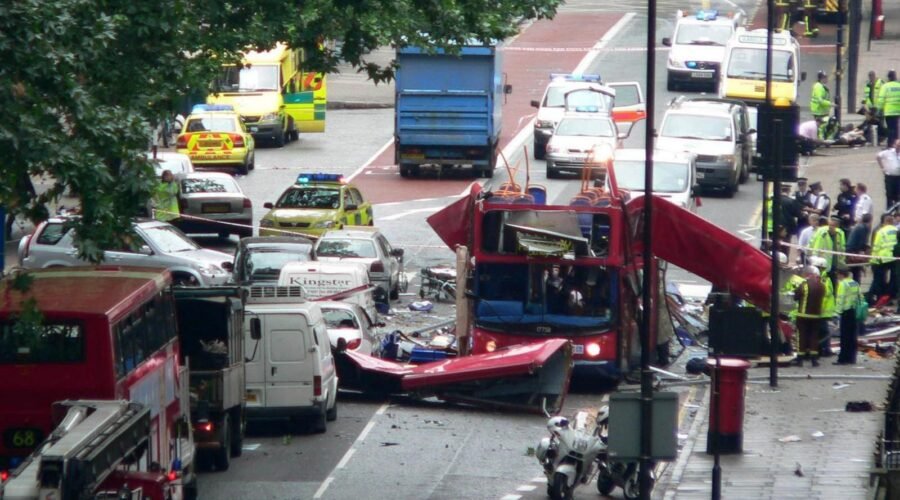On 7 July 2005, London experienced a tragedy that left a lasting mark on the nation. The 7/7 bombings shook the capital during the busy morning rush hour. Four coordinated explosions targeted three Underground trains and a double-decker bus. Killing 52 people and injuring more than 700 others. The attacks were the deadliest on British soil since World War II and marked a turning point in the UK’s approach to security and community resilience.
Commemorating the 20th Anniversary
This year, the UK marked the 20th anniversary of the 7/7 bombings with solemn commemorations across London. Services took place at St Paul’s Cathedral and Hyde Park, where survivors, bereaved families, emergency workers, and political leaders gathered to honour those lost and those who responded with courage. King Charles III led tributes, highlighting the enduring spirit of unity and compassion that emerged from the tragedy. The Prime Minister called the day a defining moment of collective resilience for the nation.
The Attacks and Immediate Aftermath
The 7/7 bombings began at 8:50 am when three bombs detonated almost simultaneously on the Circle and Piccadilly lines at Aldgate, Edgware Road, and between King’s Cross and Russell Square. Less than an hour later, a fourth bomb exploded on a bus at Tavistock Square. The attackers were four British men inspired by extremist ideology. Their actions stunned the nation and triggered a massive emergency response.
Emergency services, NHS staff, and ordinary Londoners rushed to help those affected. Doctors at the British Medical Association headquarters turned their building into a makeshift hospital to treat the wounded. The bravery and professionalism of first responders became a symbol of hope and strength for the city.
The Lasting Impact on Survivors and the Nation
Many survivors of the 7/7 bombings still live with physical and psychological scars. Support groups and charities continue to provide help for those affected, recognising the long-term impact of trauma. The attacks also forced the UK to rethink its counter-terrorism strategy. New laws expanded surveillance and detention powers, and initiatives like Prevent and Channel were introduced to tackle radicalisation.
Communities across the UK faced increased scrutiny and, in some cases, discrimination in the aftermath. However, leaders and citizens worked to foster dialogue and understanding, aiming to prevent division and support national unity.
Remembering and Honouring the Victims
Every year, the UK honours the memory of those lost in the 7/7 bombings. The Hyde Park memorial, with its 52 stainless steel pillars, stands as a permanent reminder of each life taken. On the anniversary, families and survivors lay wreaths and share stories of those they loved. The names of the victims are read aloud at memorial services, ensuring they are never forgotten.
The 7/7 Bombings and Their Place in UK History
The 7/7 bombings remain a pivotal moment in modern British history. The attacks exposed the threat of homegrown extremism and highlighted the importance of vigilance, community cohesion, and support for those affected by terrorism. The anniversary prompts reflection on how far the UK has come in building resilience and fostering unity.
Lessons Learned and the Road Ahead
Two decades after the 7/7 bombings, the UK continues to adapt to evolving security challenges. The Home Secretary recently stated that Islamist extremism remains the most significant threat, but the country also faces dangers from other sources, including cybercrime and radicalisation online. The legacy of 7/7 is a commitment to never let hatred divide communities and to stand together against those who seek to harm the nation.
The 7/7 bombings, now deeply etched in the nation’s memory, serve as a powerful reminder of the need for compassion, unity, and vigilance. As the UK marks this significant anniversary, the stories of bravery and resilience continue to inspire and guide the country forward

